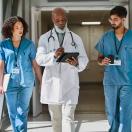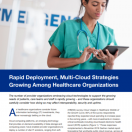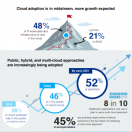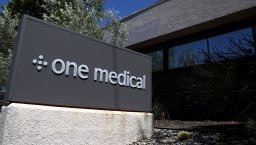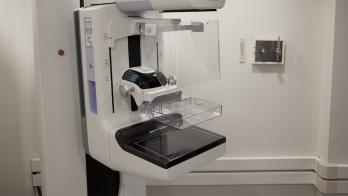Big data is a popular buzzword in classrooms and boardrooms alike these days, and it’s fair to say that data has become the driving force behind nearly every major policy decision that enterprises make. It’s also no surprise that the big data and analytics market is expected to reach $125 billion worldwide this year, and that 100 percent of large organizations will purchase external data by 2019.
But, big data is having a profound impact on the way that healthcare operators work.
Interoperability—a term used to describe a healthcare system’s ability to connect to and share data with other systems—is growing in popularity among medical providers and professionals and transforming the way that patient care is delivered. While other industries like financial, manufacturing and transportation have been collecting and harnessing big data for years, healthcare is the only industry in which interoperability and information management can literally mean the difference between life and death.
As a result, the industry is finally beginning to embrace the use of big data. For instance, the National Institutes of Health launched a Big Data to Knowledge Initiative (BD2K) last year with the goal of empowering the medical research community to manage and utilize big data better, while other research collaborations have begun between academic institutions and health care systems with the same focus in mind. At the heart of all of these initiatives and partnerships is the sheer glut of data that the healthcare industry routinely generates. According to IBM, 80 percent of medical data is not structured and clinically relevant. That means that information from electronic medical record (EMR) systems, lab systems, medical correspondence, and physician notes is out there and waiting to be utilized by doctors and health care systems to improve patient care.
While rising healthcare costs receive much of the public’s ire, it’s not the only complaint that people have regarding the care they receive. Patients are also growing tired of completing duplicate forms, undergoing repeated or unnecessary tests, and trying to recall who treated them in previous years in order to retrieve medical records.
Doctors, on the other hand, are fed up with receiving incomplete medical records and inaccurate billing reports. The healthcare ecosystem of patients, providers, and professionals would be greatly improved by hospitals integrating electronic health record (EHR) systems with customer relationship management (CRM), or linking the CRM system with billing infrastructure.
System interoperability can be useful in a number of additional scenarios, including:
- Better connecting medical facilities with healthcare providers in various locations about critical patient-related questions; ensuring media providers can receive quick answers about patient statuses and/or procedures.
- Offering medical providers greater customer support in their contact centers, including agent monitoring/reporting, outbound and inbound communications and more.
- Streamlining and accelerating patient wait times by having customer information readily available before they come in for an appointment.
- Better managing patient appointments or gaining a more predictive view into what causes patient no-shows to ensure medical clinics can save money.
It’s clear that interoperability is the key for healthcare success. With the innumerous benefits it offers healthcare providers, professional and patients, it would be a no-brainer to invest now.
It is essential for healthcare facilities to ensure critical data is protected and still accessible to both patients and providers.
Access more information from this sponsor here: www.coxbusiness.com/healthcare



